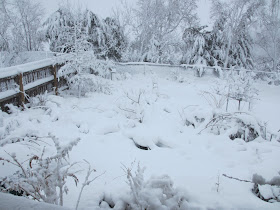Ran across this article. Says a lot we already know, but has new tidbits, too. Besides, can't harp on this enough. Reminds of the Bible quote that goes something like "what you do the least of these you do to me." It says a lot that we don't have to live like we do, but we choose to. No wonder we kill each other, have kids born as meth addicts, can't trust a government to get things done amicably and for the greater good when we're too blind by our own immediate concerns.
“Monarch butterflies warn of what might lie ahead for other wild
creatures affected by overfarming and deforestation,” says Chip Taylor,
professor of insect ecology at the University of Kansas in Lawrence, who
founded Monarch Watch in 1992.
“It’s clear that this year’s total population is down, and that the
overwintering group that just arrived in Mexico is among the lowest ever
recorded.”
The devastating reduction started 15 years ago—very recently in the
monarch’s long history. An estimated 250,000 years old, this species
predates modern humans by 50,000 years....
In March, a University of Minnesota study linked 10 years of monarch
decline to glyphosate, the most popular herbicide in the United States,
used in brands such as Monsanto’s Roundup. An estimated 84,000 tons of
glyphosate are applied annually to soybeans, corn and other U.S.
commercial crops. On top of this comes 3,600 tons used in the home and
garden sectors, and 6,800 tons used by private businesses and government
agencies.
Though glyphosate may be a boon to farmers and landscapers, it is
killing milkweed—normally among the hardiest and most stubborn of
plants—in record numbers. One recent study found that the milkweed
population in the Midwest plunged 58 percent from 1999 to 2010, and that
as a result, monarch egg production plummeted 81 percent.



.JPG)
































